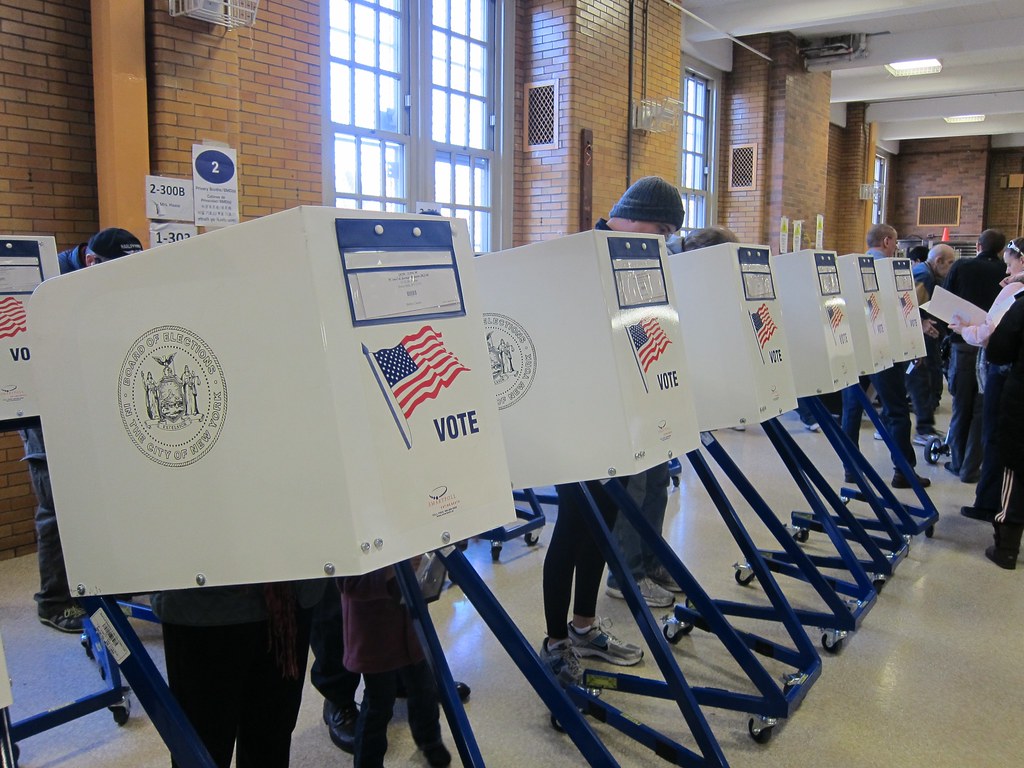
Limiting Access to the Polls
Instead of embracing the historic turnout of 2020, some conservative state lawmakers are pushing proposals that would limit voter access in future elections.

Despite the coronavirus pandemic, the 2020 election was a high point for voter turnout, in part because states expanded access to the polls through extended early in-person voting and wider use of mail-in ballots. More than 100 million people voted early in the election.
But instead of embracing this victory for democracy, conservative lawmakers in many states have pursued proposals that would make it harder for people to vote. American Oversight is investigating these threats to ballot access in the states, including strict voter-ID laws and other plans that make it harder for Americans to vote.
Many of the anti-voter restrictions target early-voting programs that have long been lifelines for citizens who have disabilities or demanding work schedules that make it difficult to get to the polls in person on Election Day. Vote-by-mail systems as well as organized ballot-collection efforts in which others — such as community groups, election officials, or family members — deliver sealed ballots on voters’ behalf also make it easier for people to exercise their right to vote.
Some proposals to restrict voting rights have already become law. In Georgia, which flipped blue in the 2020 election, Republican leaders passed a law in March 2021 that critics say amount to blatant voter suppression thanks to the many new restrictions it places on access to the polls. The law bars election officials from mailing absentee ballots out to all voters while at the same time adding strict new ID requirements for mail-in ballots and limiting the window during which voters can request them.
It also essentially bans mobile voting centers — RV-like units that were deployed in 2020 to reduce long lines in some areas, including Atlanta’s Fulton County — and greatly restricts the number of ballot drop boxes that localities can operate, along with the hours those boxes can accept ballots. We’re seeking communications, including texts and emails, between the office of Georgia’s secretary of state and state legislators who sponsored the law.
Just to the south in Florida, another law enacted in the spring also restricts absentee voting by requiring that ballots be requested before every federal election, rather than once every four years, and adding ID requirements for requesting a ballot. It also places significant restrictions on ballot drop boxes, only allowing them to accept ballots during early voting hours at early voting locations. It bans most community ballot collection, only allowing family members to deliver ballots on behalf of other voters and limiting the total number of ballots any one person can deliver. “They should be looking to expand the days of voting and access to the voting booth,” Desmond Meade, the head of the Florida Rights Restoration Coalition, told NBC affiliate WESH. “Not restrict it.” American Oversight has requested communications about the law from the law’s legislative sponsor, state Sen. Dennis Baxley, and his staff.
Arizona is another hotspot of anti-voting actions, with new restrictions on mail-in voting as well as a plan to allow the Legislature to overrule state election results and choose its own slate of presidential electors, prompting American Oversight in February to request records related to the slew of proposals. In May, Gov. Doug Ducey signed a law that dramatically curtails Arizona’s popular vote-by-mail program. Under the new law, voters are purged from the state’s early voting list if they do not cast a ballot at least once every two years.
American Oversight has also sought records related to laws or proposals in a number of other states. In Idaho, Kansas, and Wisconsin, American Oversight requested information about efforts to restrict how voters can return absentee ballots. Idaho’s H.B. 88 would prohibit third parties from returning an absentee ballot for anyone except immediate family members. In Kansas, S.B. 292 would also limit community ballot collection by requiring an additional signed affidavit from the voter and the ballot deliverer, while prohibiting people from collecting more than five ballots. And in Wisconsin, where remote ballot collection boxes helped push the state’s record absentee voter turnout in 2020, S.B. 209 would ban drop boxes not attached to a local municipal clerk office’s permanent location.
In Montana, we’ve requested any impact assessments and communications from state Sen. Tom McGillvray regarding S.B. 196, a bill sponsored by McGillvray that would allow some polling places to limit their hours. And in West Virginia, we sent a request to state Sen. Rollan Roberts seeking impact assessments and communications about S.B. 565, a bill that would eliminate automatic voter registration.